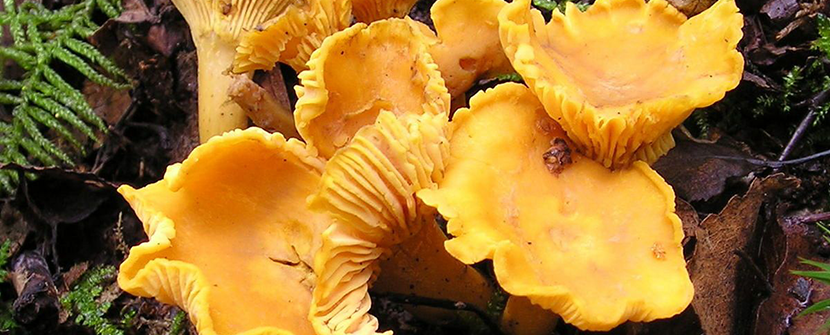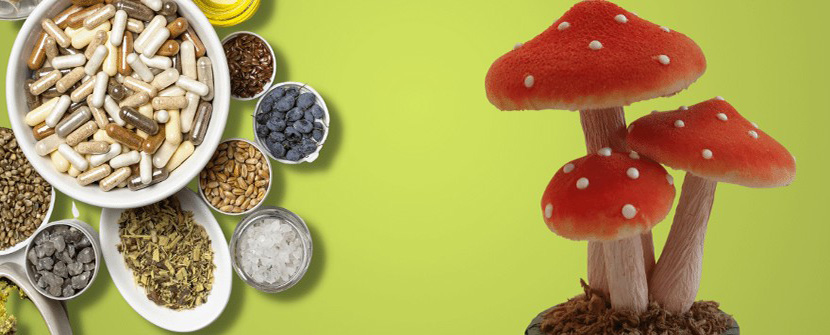The world of mushrooms offers a vast array of flavors, textures, and health benefits. Among them, the Maitake mushroom, also known as Hen of the Woods, stands out for its unique appearance and potential medicinal properties.
In this blog post, we will delve into the fascinating characteristics, nutritional value, potential health benefits, and culinary uses of Maitake, the beloved Hen of the Woods mushroom.
Origin and Description
Maitake mushrooms, scientifically known as Grifola frondosa, are native to the mountainous regions of northeastern Japan and parts of North America. In Japanese, "Maitake" translates to "dancing mushroom," named so due to the joyous reaction people had upon discovering this precious fungus in the wild. The mushrooms grow in clusters with overlapping, fan-shaped caps that are often frilly or wavy in appearance, ranging in color from grayish-brown to dark brown.
Nutritional Profile
Maitake mushrooms are a low-calorie, nutrient-dense food that offers an array of essential vitamins, minerals, and bioactive compounds. Here is a breakdown of its nutritional composition per 100 grams (1):
- Calories: 31
- Carbohydrates: 6.3 grams
- Protein: 2.2 grams
- Fat: 0.3 grams
- Fiber: 1.1 grams
- Vitamin B2 (Riboflavin): 0.38 milligrams (19% of the Daily Value)
- Vitamin D: 21.7 international units (5% of the Daily Value)
- Potassium: 373 milligrams (11% of the Daily Value)
- Copper: 0.44 milligrams (22% of the Daily Value)
- Zinc: 0.53 milligrams (4% of the Daily Value)
Health Benefits
- Immune Support: Maitake mushrooms are renowned for their potential immune-boosting properties. They contain beta-glucans, a type of polysaccharide that stimulates the immune system, enhances its response to infections, and may help reduce the risk of certain diseases.
- Antioxidant Activity: Maitake mushrooms are rich in antioxidants, including ergothioneine and various phenolic compounds. These antioxidants help combat free radicals in the body, protecting cells from oxidative damage, and potentially reducing the risk of chronic diseases such as cancer, heart disease, and neurodegenerative disorders.
- Blood Sugar Management: Research suggests that Maitake mushrooms may have a positive impact on blood sugar control. Some studies have shown that Maitake extract can improve insulin sensitivity, regulate glucose levels, and reduce insulin resistance, which may benefit individuals with diabetes or those at risk of developing the condition.
- Blood Pressure Regulation: Preliminary studies on animals have indicated that Maitake extract may possess antihypertensive properties, which could help manage blood pressure levels. However, further research is needed to confirm these effects in humans.
- Anti-Cancer Potential: Several studies have explored the potential anti-cancer properties of Maitake mushrooms. It is believed that the beta-glucans present in Maitake mushrooms may stimulate the immune system to fight against cancer cells and inhibit their growth. Nevertheless, more research is necessary to determine the extent of its effectiveness in human cancer treatment.
Culinary Uses
Maitake mushrooms have a robust, earthy flavor with a meaty texture, making them a popular ingredient in various culinary dishes. Here are a few ideas on how to incorporate Maitake mushrooms into your meals:
- Sautéed or stir-fried: Slice Maitake mushrooms and sauté them with garlic, olive oil, and a sprinkle of salt and pepper. Add them to stir-fries, pasta dishes, or risottos for an umami-rich flavor.
- Roasted: Toss Maitake mushroom clusters with olive oil, herbs, and spices, then roast them in the oven until golden and crispy. Enjoy them as a side dish or use them as a topping for salads or pizzas.
- Soups and stews: Add Maitake mushrooms to soups, broths, or stews to infuse their unique taste and nutritional benefits into your comforting meals.
Final Thoughts
Maitake mushrooms, the esteemed "King of Mushrooms," offer not only a delightful culinary experience but also potential health benefits. From immune support to antioxidant activity, blood sugar management, and potential anti-cancer properties, Maitake mushrooms have earned their place as a revered ingredient in traditional medicine and modern cuisine.
So, the next time you come across these flavorful fungi, don't hesitate to embrace their unique taste and potential health-enhancing qualities.








